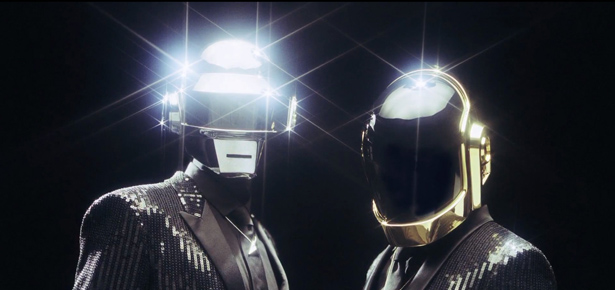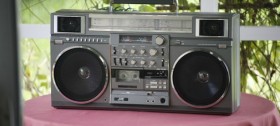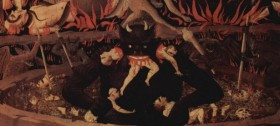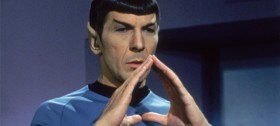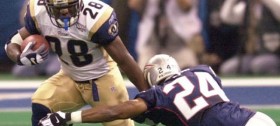Posts tagged Contact

Full Contact Skydiving
As part of the new “No Bull. Just Energy.” campaign, AMP Energy created a fake extreme sport called Full Contact Skydiving (FCS), presented in a two-part video series that has a little fun with the over-promise of energy drink marketing by its competitors. While other energy drink brands focus on hype and extreme activities, AMP Energy is all about providing real energy without the hype.
The first unbranded mockumentary-style video introduced the new “sport” and its athletes, Josh and Damian, the two aerial fighters in the video. We recruited Urijah Faber, extreme sport enthusiast, MMA champion and long-time AMP Energy athlete, to coach and train professional skydivers’ freefalling and fighting in action.
The video sparked a national debate to whether the sport was real or fake, and within the first week, the YouTube video has received nearly 1.2 million views. Consumers are buzzing about it with more than 1.4 million impressions on Twitter and over 38,000 visits to the FCS website.
Today, AMP Energy released a second video revealing that FCS is not a real sport, and that consumers shouldn’t buy the hype if they are looking for real energy from an energy drink.
Jun 25th

Daft Punk ‘Random Access Memories’
They didn’t choose the easy path. Here we have one the most anticipated albums in recent history, produced by the futuristic godfathers of Electronic Dance Music. Without warning, Daft Punk has snapped the rubber band of social trends back onto the giant beats and cold shrieks of the Dubstep generation. Their 4th studio album, “Random Access Memories” offers a smooth rebuke to the jarring and the intense. The album is a slow burn, assembled with love by the French duo and an assortment of live musicians and musical legends. Aside from the instant summer anthem “Get Lucky” one does not simply listen to single tracks off of this album. This collection has been thoughtfully produced to be ingested from beginning to end. Each track benefits by the context of the ones that precede and follow it.
Is it the artist’s responsibility to make their art quick and easy to digest? This responsibility has certainly been mandated upon popular music. The monetization of art and media demands increasingly easier and easier singles and snippets for the masses. Micro transactions and commercial sampling rights rule the day. Popular musicians must wait for the captive audiences of a concert to express more than their most popular riff. It is their last stand against shuffle and our collective short attention span.
Daft Punk’s creators, Thomas Bangalter and Guy-Manuel de Homem-Christo, are no longer bound by such creative restrictions. They’re rich, they’re almost 40, they’re largely anonymous. They spent a ludicrous amount of their own money on “Random Access Memories” and they don’t seem to care if you like it very much. Very few of the tracks are radio friendly. Some of them, like “Lose Yourself to Dance” (featuring Pharrel Williams) just never seem to get going, a song with no real beginning or end, just a rolling chorus over and over again. But when you listen to it fade into the schmaltzy, over the top broadway inspired anthem “Touch” (featuring Paul Williams) it starts to make sense. “Touch” by the way, thanks to Paul Williams’ wildly expressive voice, is one of the more transporting songs on an album that easily carries you away. The transition from “Touch” to “Get Lucky” takes you from the bright lights of Broadway to the smoky corners of a 70’s dance hall effortlessly and begins the best parts of the track list.
This attack on contemporary music began in the studio. Rather than sample many of the beats and tracks that construct each song, musicians, many of them the actual session musicians from the original recordings, were brought in to record the selections live. Legends like Giorgio Moroder, Nile Rodgers and Pharrel Williams team up with full orchestras to recreate a time when entire arrangements were not available at the touch of a button. It produces a sound that remains distinctly analog despite the near omnipresent Daft Punk vocoder.
It’s an impressive result if listened to in full. The third track “Giorgio by Moroder” begins with a spoken word interview with the man whose early use of the synthesizer helped shape the transition of music through the disco era. His stories lay the foundation for the rest of the music on the album. They warn you with his words that they will be going backwards and looking forward, that their aim is to make the music they want without fear of judgement. There is a richness and inspiration to this album that really starts to gain steam in it’s second half. In headphones you can truly hear the care and effort that went into each moment of every song. The high end stereo systems that came into fashion in the 70’s would benefit greatly from the mixing and engineering behind this effort. The sound is very cinematic, it’s themes carry you forward and tell you a story of music and what they think it can be. In the final track, “Contact” a sample from Astronaut Eugene Cernan aboard Apollo 17 implores us to look further, “There’s something out there”, his crackling voice tells us. The imagery of space implies the future, yet fittingly it is described to us by an astronaut of the past. Their message is clear.
In this time of Taylor Swift, Skrillex and Justin Bieber, I can’t help but enjoy the idea of an open minded teenager pressing play on track one of “Random Access Memories”. I imagine this future musician at their computer with headphones on, allowing them to hear each nuance and fluctuation of beat, pitch and tone. I picture this child without a deep musical context, just discovering what music shapes them and feeling as though Daft Punk has produced something breathtaking and new. It’s the same space I reflect back to before I began to realize how much of the rap and popular music I grew up with were really just sampling the power of the beats that came before them. In “Random Access Memories” Daft Punk takes a personal stand against the machines that they so effectively helped to bring to prominence. They strike back against the beats of tomorrow and stake their claim in music as something more than just DJ’s or producers. At this level, when directing musicians with sheet music and created beats, are they not elevated to composers? This collection of songs will live on past it’s time at the top of the charts. Much like “Homework” inspired a generation of DJ’s and musicians, “Random Access Memories” will tell it’s own story by the music and themes it inspires others to create.
Daft Punk
May 29th

